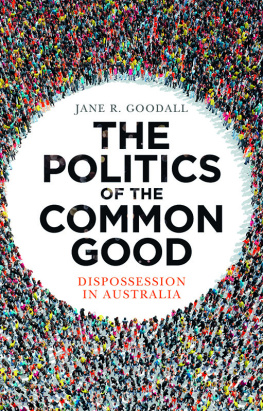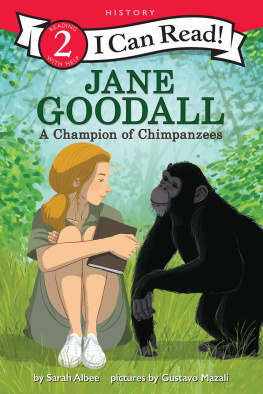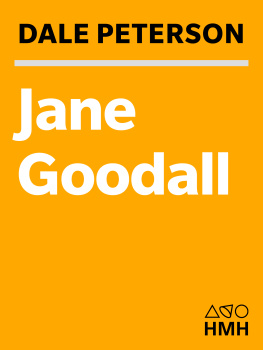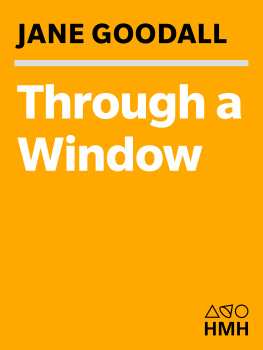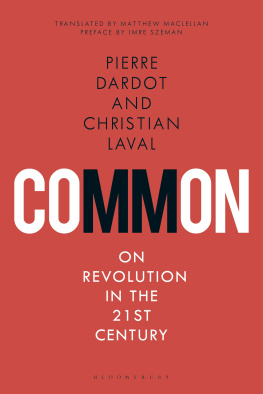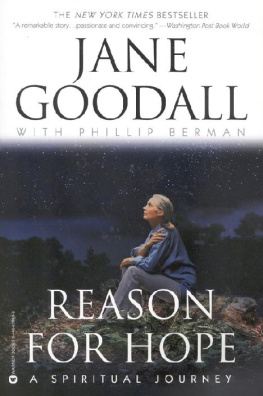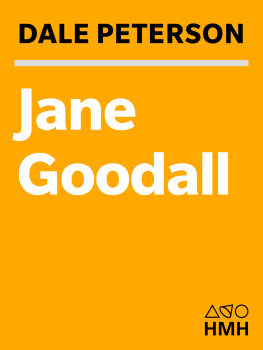
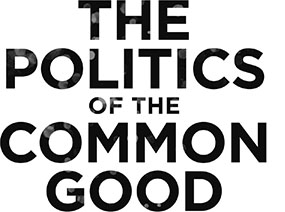
JANE R. GOODALL is an Emeritus Professor with the Writing and Society Research Centre at Western Sydney University. She has a diverse track record as a writer and commentator on the history and politics of cultural change. She writes regularly for Inside Story.
For Peter

A NewSouth book
Published by
NewSouth Publishing
University of New South Wales Press Ltd
University of New South Wales
Sydney NSW 2052
AUSTRALIA
newsouthpublishing.com
Jane R. Goodall 2019
First published 2019
This book is copyright. Apart from any fair dealing for the purpose of private study, research, criticism or review, as permitted under the Copyright Act , no part of this book may be reproduced by any process without written permission. Inquiries should be addressed to the publisher.
ISBN: 9781742236018 (paperback)
9781742244501 (ebook)
9781742248967 (ePDF)

A catalogue record for this book is available from the National Library of Australia
Design Josephine Pajor-Markus
Cover design Luke Causby, Blue Cork
Cover image Adobe Stock, tai111
All reasonable efforts were taken to obtain permission to use copyright material reproduced in this book, but in some cases copyright could not be traced. The author welcomes information in this regard.
WARNING: This book contains names of deceased persons of Aboriginal and Torres Strait Islander descent.

CONTENTS
ACKNOWLEDGMENTS
I realised when I started work on this book that almost everyone I talked to had knowledge or experience relevant to its themes. While its important to learn from books and documents, theres another kind of understanding to be gained from conversation: insights emerge as the dialogue unfolds, points of information find richer contexts, vital connections are made between one area of inquiry and another.
Some of my friends are both voracious readers and excellent conversationalists. I learned much about the passions of politics and the responsibilities of journalism from Sylvia Lawson, a close friend who died before this was finished. Karey Harrison shared ideas from her wide knowledge of social and political theory; Helen Macallans quicksilver intelligence and generosity of spirit are always an inspiration; Chris Fleming will answer almost any question at any time of the day or night with casual erudition, as if it were the most fascinating thing you could ask; Helen Grace has a wry wisdom and a way of seeing how an issue opens onto wider spheres of inquiry. My brother Mark Haeffner was an expert guide to the literature on the English Revolution, and is alert to its present relevance in ways I found helpful to the original conception of the book. And Nick Haeffner has a shrewd take on the British political scene, grounded in cultural research into the Thatcher era.
I am also blessed with friends who have specialist knowledge that was highly relevant. Phil Candy is the author of a book on mechanics institutes; he and Mary-Anne Candy were wonderful company on expeditions to regional towns. Veronica Kelly wit, polymath and history scholar extraordinaire was a companion of the road who brought a vital and personal sense of how lives were lived in the places we visited. In Armidale I enjoyed long conversations with Jane OSullivan about local and regional issues in the New England towns. Nino Bellantonio and Shelley Schreiner, who live in Gundaroo, provided multi-faceted insights to the life and history of the town and introduced us to the Gundaroo Film Society.
Closer to home, Kathy Robinson, my regular companion on local bushwalks, offered cross-cultural perspectives from her knowledge of communal economies in Indonesia. Mark St Leon, whom I met at a conference at the Australian National University, is a scholar whose research on circus history provides vital perspectives on Australian social and economic history. He was generous in providing articles on circus history, but also in drawing on his wealth of knowledge to answer questions about the entertainment culture of regional towns. Patricia Prociv, a councillor representing the Rosehill Ward in Parramatta, shared her reflections on the challenges of local government and the preservation of the commons.
I had a valuable hour with former MP Cathy McGowan, in which she gave a rich and cogent account of community projects in her electorate of Indi. Tim Hollo of The Green Institute shared insights from his extensive knowledge of the contemporary commons movement and its history. Scotty Foster, an engaging philosophical thinker who is also deeply knowledgeable in this area, gave detailed information about local and regional commons networks. As the maelstrom of contemporary politics spins out across the twittersphere, Denise Shrivell is a daily contributor of unfailing clarity and principle; I am grateful for her views on the dynamics of the changing political culture.
Professor the Hon Stephen Martin answered questions about the Keating agenda and the changing role of the Commonwealth Bank. Alan Cummine, current editor of the Gundaroo Gazette, explained its history and role in community life. Chip Ealing provided a trade union point of view on business cultures in Wodonga and Miriam Thompson, a researcher for United Voice, gave insights into the impact of privatisation on workers in recreation facilities. Keith Gallasch and Virginia Baxter responded to questions about entertainment and performance venues in the current political environment.
For key illustrations and points of detail, I am grateful to Yana Taylor for her account of the closure of Parramatta Memorial Pool; to Lester Yao for permission to quote from records on his accounts of the community roll-down on the lawns above Parliament House; to Hilton Dawson for permission to quote from his account of controversies over public amenities in Newbiggin; and to Wendy Bacon for permission to quote from documents on her website concerning the campaign against West-Connex. Thank you to Rachael Hodges of the Mossman Gorge Centre for permission to include a story from the Kuku Yalanji Dreamtime Walk, with acknowledgments to the Kuku Yalanji People and their elders, past and present.
Peter Browne, stellar editor of Inside Story, has given me the opportunity to write on many topics and to learn about our political culture from many angles. Foong Ling Kong, another virtuoso of the editorial world, was kind enough to look at the proposal and suggested the wonderful Phillipa McGuinness at NewSouth as someone who would respond to it, as indeed she did, with so much of her own knowledge and insight into the issues addressed in the book. My dear friend Stephanie Dowrick, the first person to read a draft, has been a powerhouse of support and encouragement.
You are nothing without family, as we were told on the Kuku Yalanji Dreamtime Walk. My son Jon, with his dry humour and incisive take on things, is ever a delight to have around. He and his wife, Mimi, have enlivened our weekends. Peter Goodall, blessed with a memory for all the history and literature I have forgotten and much I never knew, has been a fellow traveller all along, and in the final lap has done heroic work checking facts and references. Errors are gremlins that sneak through your blind spot, and I take full responsibility for any that remain.
Next page
